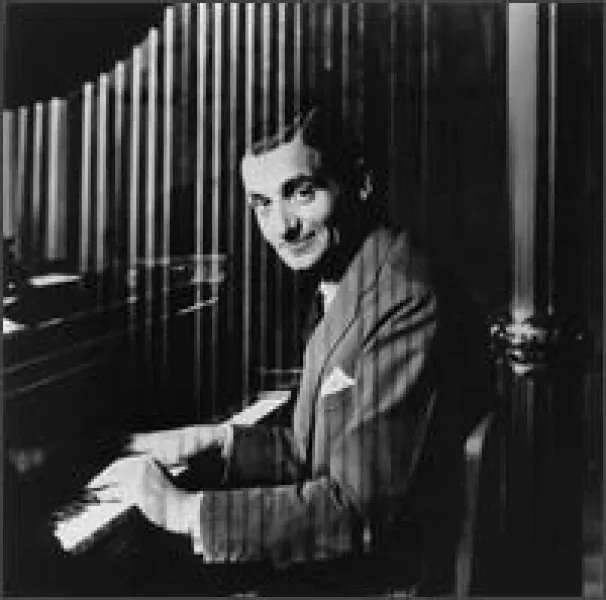
Irving Berlin
Top Irving Berlin albums
Top Irving Berlin lyrics
(I Wonder Why) You're Just In Love
Irving BerlinA Couple Of Song And Dance Men
Irving BerlinA Man Chases A Girl (Until She Catches Him)
Irving BerlinA Pretty Girl Is Like A Melody
Irving BerlinA Sailor's Not A Sailor (Til A Sailor's Been Tattooed)
Irving BerlinAfter You Get What You Want, You Don't Want It
Irving BerlinIrving Berlin biography
Irving Berlin (1888-1989) was the most successful songwriter of the 20th century. Though, like his contemporaries, he spent the better part of his career writing songs (usually both words and music) to be used in Broadway musicals, he is better remembered for the songs themselves than for the shows (and sometimes films) in which they were introduced. This is because Berlin was a master at the kind of music that flourished from the turn of the century until World War II, shows that were really just collections of production numbers, scenes, and novelty acts (organized vaudeville presentations, really) rather than the story musicals that became prevalent starting with Rodgers and Hammerstein's Oklahoma! in 1943. It is also because Berlin, who did not read music and could play the piano in only one key and only on the black notes (he used a special piano with a lever that changed keys for him and employed a musical secretary to notate his compositions), wrote songs, not scores.br /br /But what songs! Out of more than a thousand, a short list would include "Alexander's Ragtime Band" (his first major hit, in 1911), "God Bless America," "A Pretty Girl Is like a Melody," "Always," "Blues Skies," "Puttin' on the Ritz," "How Deep Is the Ocean?," "Cheek to Cheek," "Let's Face the Music and Dance," "White Christmas," "There's No Business like Show Business," "I Love a Piano," "What'll I Do?" "Easter Parade," and "Oh, How I Hate to Get Up in the Morning." The last came from one of the two shows Berlin organized and performed in during the two world wars (he can be seen in the film version of the second one, This Is the Army).br /br /Berlin became his own song publisher and built and owned a Broadway theater, the Music Box, to house his shows. Perhaps his greatest and his last hit came with the musical Annie Get Your Gun in 1946, though he did write three more before retiring in 1962. ~ William Ruhlmann, All Music Guide
